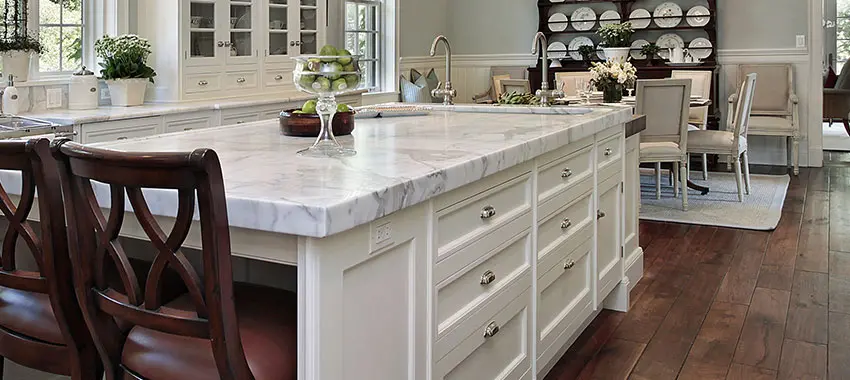
Why You Should Stay Away from Chinese Quartz Countertops
- Posted on
- FlintstoneCounters
In everyday life, people can pay more attention to the concept of environmental protection. This is especially under the widespread of “low carbon”, which is a popular new proposition. This is primarily for going “green” and protecting the environment. The stone is more particular with circular economy and conservation of energy and has become the product’s mainstream trend in product development.
Every day, the company normally has some questions from clients. For instance, how do Chinese quartz slabs perform? You can compare Chinese vs. American quartz kitchen countertops, but there are major reasons why you should not choose the Chinese ones. Read this article until the end to learn more.
The Tariff
Among the biggest issues when it comes to Chinese quartz countertops and general pricing cost because of new regulations from China. Chinese Quartz recently had a steep tariff of more than 300% that has been put in place. For instance, if you paid $1,000 for a Chinese quartz slab, you would end up paying $4,000. This can also lead to a decline in the availability of Chinese quartz in the USA.
Resin Pooling
Quartz countertops imply that they are made using 100% natural stone, but the beauty in this product comes from engineered stone. Actually, quartz countertops are made of 93% quartz, mixed with dyes and resin. This will render durable, non-porous, and consistent color in such a way that natural stone is.
One issue that comes from overseas quartz countertops and mainly in the Chinese variety is resin pooling. This is because of countertop inconsistency that could lead to large colored resin pools that are marring in the counter surface.
Slab Thickness is Inconsistent
You will not always get what you see with Chinese quartz countertops. A lot of people already reported issues with the different or incorrect thicknesses of Chinese quartz countertops. There have been rising issues because of the material being sold and advertised while certain thicknesses and countertops being delivered do not have the accurate thickness. Since the material is thinner, it could make countertops less durable and it creates an issue when it comes to countertop installation. In case the material is too thick, this causes misalignment from the right template and they might not correctly fit in your kitchen.
Material Quantities are Inconsistent
Even if every quartz manufacturer follows a strict quartz o resin ratio, a lot of Chinese products have less consistency. Some can use higher percentages of resin that has less quartz stone.
This contributes to resin pooling, and it also provides a more flexible countertop that can be bent while being transported. The inconsistencies in ratio mean that the countertop’s quality is inconsistent. You will not know the material’s quality you are buying because you might not be able to visually detect the problem.
Chemical Standards
The USA is among the strictest countries when it comes to stands of health and safety. Therefore, products being produced in the USA go through the rigorous product and quality checks, which ensures that the production method follows the law. The Chinese standards are different from the USA, and, the chemicals used in the production might not be safe. For instance, Chinese quartz countertops could emit a smell during the first year or more in your home because of excess chemicals used in China’s production. This is an important consideration because the USA has specific regulations on what chemicals can be used in the surface product that comes in contact with food.
You can contact quartz countertop dealer Montgomery County MD to have the best ones installed in your kitchen.

